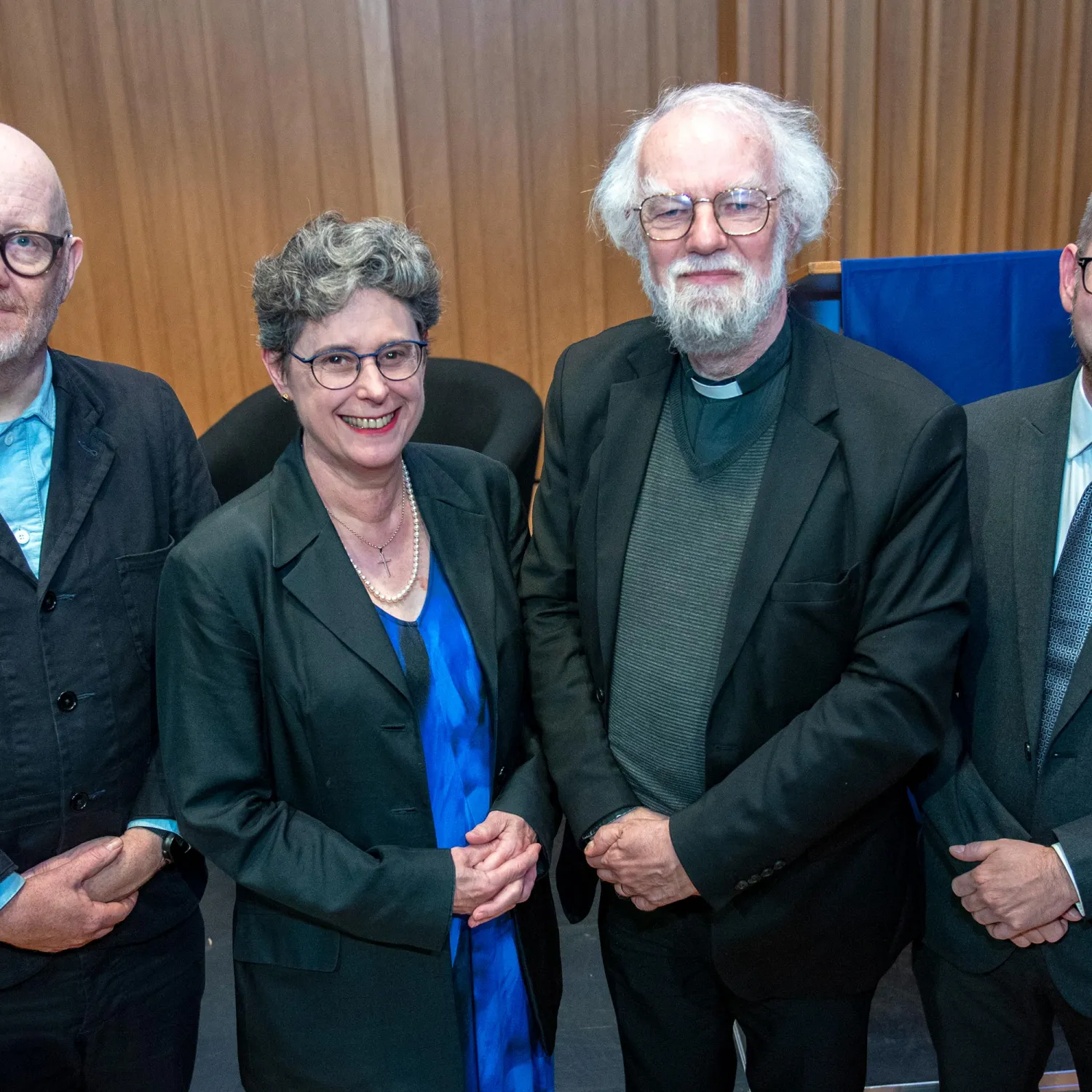Qualifications
MA Chemistry (University of Oxford), DPhil Biochemistry (University of Oxford), MA Theology and Religious Studies (University of Cambridge), PhD Mediaeval Theology and Philosophy (University of Cambridge)
Academic background
I came to Oxford as undergraduate to read Chemistry in 1992, staying on for a DPhil in Biochemistry. For this period (1992–1999), I was at Merton College. After a year partly in Florence and partly in New York, I moved to Cambridge for an undergraduate degree in theology. I served my curacy – which is to say, I was a trainee clergyman – in Southeast London. I returned to Oxford, to my first teaching position, as tutor in Christian doctrine at St Stephen’s House, followed by a similar role at Westcott House in Cambridge. Not having a PhD in theology, I studied one part-time during those Oxford years, and the first few years in Cambridge. It was on the understanding of finitude in two mediaeval writers: Thomas Aquinas and John Duns Scotus. From Westcott House, I moved to a position in the Faculty of Divinity in Cambridge, as Starbridge Lecturer (later Professor) in Theology and Natural Sciences. From 2022–24, I was a visiting fellow at the Center of Theological Inquiry in Princeton, New Jersey. I became Regius Professor of Divinity at Oxford in September 2024, which means that I am also a residentiary canon of the Cathedral at Christ Church.
Undergraduate teaching
I teach the undergraduate course Key Themes in Systematic Theology, but much of my teaching is for postgraduates (covering the MPhil and MSt in Christian Doctrine). Previously, I taught theology and natural sciences papers at Cambridge in the Faculty of Divinity.
Research interests
The 13th-century theologian and philosopher Thomas Aquinas is one of my main research interests, and sources of intellectual inspiration: making me a 'Thomist'. It's not that I think Aquinas is the place where thinking can stop, as if he had all the answers, but I think he is a remarkably good place to start. During my time in theology and natural science at Cambridge, I wrote on the theological significance of some recent developments in Biology, themes in Christian Platonism ('participation') and AI. The topic of life beyond Earth became an increasingly important research area, and I had a hand in setting up the Leverhulme Centre for Life in the Universe at Cambridge. All of that continues to occupy me. In the past couple of years I have also been working on the way in which the parts of Christian belief hold together and influence one another, a project that I'm calling the 'relation of doctrines'.
Featured publications
‘"Tools Are for the Worker", Machine Learning as an Instrumental Cause', Theology, Philosophy and the Sciences, 11, no. 2 (2024): 158–80, doi:10.1628/ptsc-2024-0014
‘Deification and the Metaphysics of Participation’ in Oxford Handbook of Deification. Edited by Paul Gavrilyuk, Andrew Hofer, and Matthew Levering. Oxford: Oxford University Press. 2024.
Astrobiology and Christian Doctrine: Exploring the Implications of Life in the Universe. Cambridge University Press. 2023.
‘Participation in the Christian Doctrinal and Philosophical Tradition’, St Andrews Encyclopaedia of Theology. Edited by Brendan N. Wolfe et al. 2023. https://www.saet.ac.uk/Christianity/Participation
‘Participation and Nature in Christian Theology’. In The Cambridge Companion to Christianity and the Environment, edited by Alexander Hampton and Douglas Hedley, 80– 95. Cambridge: Cambridge University Press. 2022.
New or revised entries – including ‘Dualism’, ‘Life’, ‘Form’, ‘Hylomorphism’, ‘Participation’, ‘Thomism’, and ‘Science and Religion’ – in The Oxford Dictionary of the Christian Church. Edited by F. L. Cross, E. A. Livingstone, and A Louth, Fourth. Oxford: Oxford University Press. 2022.
‘Machine Learning and Theological Traditions of Analogy’. Modern Theology 37, no. 2 (April 2021): 254–74. https://doi.org/10.1111/moth.12682.
Participation: An Exploration in Christian Doctrine and Metaphysics. Cambridge: Cambridge University. 2019.





